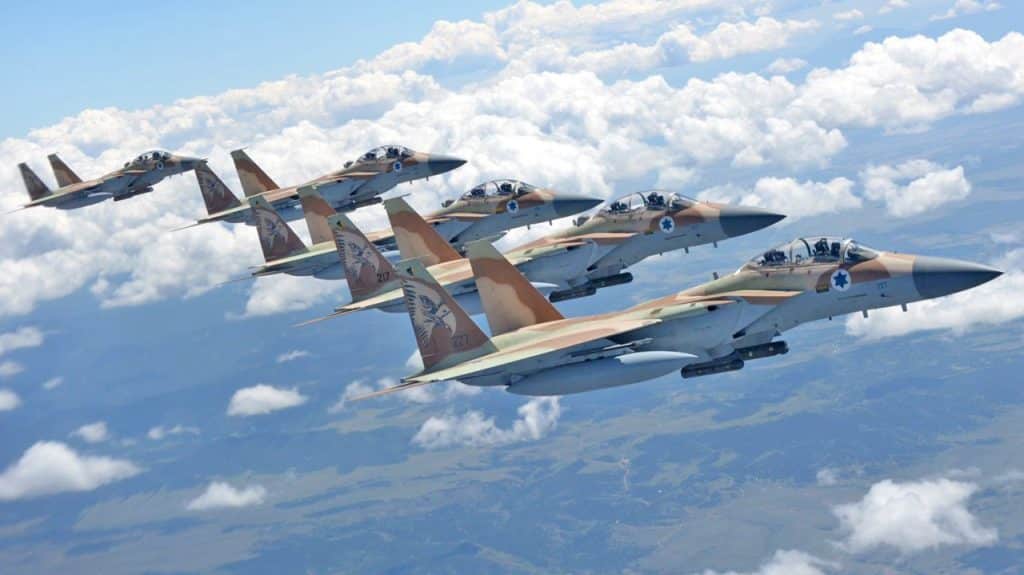Israeli Defense Minister Beni Ganc confirmed reports that a Russian S-300 anti-aircraft battery opened fire on Israeli airplanes on a combat flight over Syria. The incident took place on May 13 this year. Ganc did not disclose how many missiles were fired, but assured that no Israeli aircraft had been hit, that there were no planes near the launch pad at all, and that it was a one-off incident.
These last words may suggest that the Russians tried to play the game on the principle: God a candle and the devil a stump. The purpose of firing a missile (or missiles) was not to shoot down an Israeli plane, or even to prevent it from performing a combat task, but only to “prove” to Bashar al-Assad and his associates that Russia tries to help the authorities in Damascus to defend the sovereignty of the Syrian sky. The anti-aircraft system was launched for show, deliberately in such a way that the Israelis did not lose a hair from their heads.
-ADVERTISEMENT-
Since the Russians went hand in hand with Israel, why did Ganc decide to confirm this incident, so far known only from completely unofficial media reports? It can be assumed that this is a reaction to the growing tensions between Moscow and Jerusalem and the steps taken by the Russian authorities against the Jewish community. The local justice ministry recently filed a motion with the court to liquidate the Russian branch of the Jewish Agency. Considering what the Russian judiciary looks like, the decision has already been made, and not in court. Prime Minister Ja’ir Lapid said that the dismantling of the agency would have a far-reaching impact on relations between the two countries.
The incident described here occurred during an attack on targets near the city of Masyaf in the Hama muhafase. It is uncertain whether the attack was carried out by the Israeli F-16s (pictured), which most often venture over Syria, or by other types of machines.
(IDF Spokesperson Unit)
Russian S-300 Faworit anti-aircraft systems were deployed in Syria for the first time, probably in 2015, shortly after Moscow leased Humayimim base from Assad. In 2018, the Syrians received their own systems, but it is known that their use is still tightly controlled by the Russians. It is not known exactly how many launchers were in this country.
As pointed out in the period immediately preceding Russia’s bandit attack on Ukraine, Jerusalem must maintain good relations with Moscow, as Russia largely controls Syria’s airspace. Meanwhile, Israel considers it a vital interest to maintain the capability to conduct air operations targeting Iranian personnel and resources in Syria.
“I think the situation is now stable,” said Ganc. – But we always analyze this story as if it had just begun.
For example, in January and February, Israel focused on attacking convoys with missiles manufactured in Iran and shipped to Lebanon. The operation required continued coordination to avoid accidental shelling by Russian soldiers stationed in Syria. Although Moscow allowed combat flights, it also expressed indignation for external use. At the same time, Russian Foreign Ministry spokeswoman, Maria Zakharov, expressed deep concern about “Israel’s continued attacks on targets in Syria” and called them “a primitive violation of the country’s sovereignty” that could “provoke a violent escalation of tensions.”
However, it must be remembered that the balance of power in the Syrian civil war is complex and fluid. As we wrote a few months ago, the Russian Federation and the Islamic Republic of Iran have tried, almost from the first days of the Russian intervention in Syria, to coordinate actions in that country, respect their spheres of influence and not get in the way of each other. With the outbreak of the war in Europe and the shift of Russian attention to Ukraine, Tehran began boldly seeking to strengthen its position at the expense of Moscow. Military diplomacy began in the first days of the war in Ukraine, taking advantage of the favorable position of the government in Damascus.
See also: US Navy and US Marine Corps argue over amphibious ships
IDF Spokesperson’s Unit / CC BY-SA 3.0

